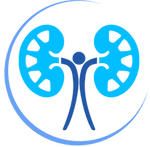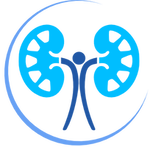|
Your blood pressure plays a vital role in your overall health. However, it can become pretty complicated, leading to a lot of questions. Listed below are some frequently asked questions about blood pressure!
I had a high blood pressure reading. Do I have hypertension now? When we look at your blood pressure, we are looking for a trend over time. One reading may be an outlier or an anomaly. We want to see what your home readings look like on a daily basis, rather than just once in the doctor’s office. Many patients experience “White Coat Syndrome” or higher blood pressure and/or pulse due to being at the doctor’s office or in a medical setting. However, if this high reading is accompanied by symptoms like headache, irregular/fast heart rate, or nosebleeds, please seek medical attention. I only have high blood pressure. What do my kidneys have to do with that? The kidneys play an integral role in the balance of sodium and fluids in the body. If the kidneys begin to not work properly and these levels become unbalanced, then we can see changes in the blood pressure. They also manage and balance the other electrolytes and some hormones that can contribute to blood pressure. What is a “normal” blood pressure reading? “Normal” can look different for everyone based on their unique circumstances. Generally, a systolic blood pressure of 120-140 and a diastolic of ½ to ⅔ of that reading is considered normal. However, there are cases where a patient may not be able to get a reading like that without feeling ill. Why do I have to take my blood pressure multiple times? Blood pressure is constantly changing from minute to minute and there are a variety of factors that can contribute to those changes. We always recommend taking a moment to breathe and relax before taking a reading. If your reading comes back high, take a few minutes to take deep breaths and think happy thoughts. Take the reading again. It will most likely be lower than the first. If it is not, then we can assess and that’s when an emergency hypertension medication could be taken. The original reading could be affected by things like recent activity before sitting down to take your blood pressure or stress. We will generally go by the second reading rather than the first. When is the best time to take my blood pressure? The best time to take your blood pressure is 1-2 hours after taking your medication, when you are calm, relaxed, and comfortable. The time of day may vary for each person based on your personal schedule. When possible, take your blood pressure around the same time of day. This practice gives the most accurate results and lets us see how well your medications are working. What are the symptoms of high or low blood pressure? High Blood Pressure: headache, irregular or fast heart rate, nose bleeds, nausea (with or without vomiting), anxiety, chest pain, vision changes Low Blood Pressure: dizziness, lightheadedness, vision changes, fainting, weakness, nausea (with or without vomiting), confusion Why is my bottom number (diastolic) high? Your diastolic blood pressure is the number on the bottom of the reading. It is the pressure inside your arteries when the heart is filling, between the heartbeats.Your diastolic blood pressure will generally follow the systolic blood pressure. Your diastolic should be about ½ to ⅔ of the systolic number. Munjal’s Musings: “Think of your blood pressure like a car. When you steer the front, the back end tends to follow. The same goes for blood pressure. When you focus on and adjust the systolic (top number), the diastolic (bottom number) tends to follow. This can be said for most people but is not applicable to all.” If you are concerned about your blood pressure, track your readings on a regular basis and call to make an appointment today! As always, stay safe and healthy! Comments are closed.
|
About The BeanThe Bean is a blog on a mission to share valuable information in the world of Nephrology. We believe in empowering through education and The Bean is a great place to find resources and information on topics related to high blood pressure, kidney disease, dialysis, and topics that enhance the kidney minded lifestyle. Enjoy and be sure to subscribe! Archives
July 2024
Categories |
Contact Us |
Careers |
Connect With Us |
|
13241 Bartram Park Blvd., Suite 1001
Jacksonville, FL 32258 Open Map Tel: (904) 260-9898 Fax: (904) 260-9891 |
Interested in joining our team? Jacksonville Nephrology is dedicated to compassionate patient care through teaching and giving our team the tools needed to go above and beyond. Learn more about current openings. Learn More
|


